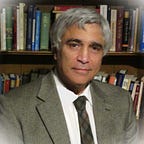The most famous judicial decision in Scripture was both a matter of judgment and of detective work. You’ll remember the two women who came before King Solomon, each claiming to be the mother of a little baby. The true mother claimed that the other woman had had a child who died when she smothered it by accident at night, and before daybreak this careless woman had gone and had stolen hers away while she and the baby were asleep, placing the dead child at her bosom instead. The false mother merely denied it. So back and forth they argued, and Solomon had to decide the case: and decide is our Word of the Week.
The king did it in a way that is in accord with the inner meaning of our word. He asked for a sword, and then he made as if he were going to cut the baby in half, giving one half to each woman. At this point the true mother, whose heart yearned within her, cried out, “O my Lord, give her the living child!” But the liar was content to see the second child slain: so powerful an evil is envy. Solomon, of course, was putting the women to the test, and told his servants to give the child to the true mother, because he saw her truth and her love in action. He judged right: the verb in Hebrew is shaphat, and it is often used with the preposition meaning between. That is, you make a decision between two claimants, one on one side, one on the other. It is as if you were to take a sword and cut through all noise, falsehood, and pretense, or as if you were to divide a field by cleaving it with a boundary line, or, if you are Abraham and you are trying to soothe the animosity between your men and those of your nephew Lot, you tell him to choose to go either to the left or to the right, and you will take your flocks to the other side. You cut the matter in a fair division. You decide.
Of course, once you decide, if it is a real decision and not just shilly-shallying, there’s no going back. The cut is made. Thus we often use the word decide to denote something final. The winning pitcher in a baseball game, we say, gets the decision: the loser suffers the decision. If you are the starter and, let’s suppose, you leave the game with a lead, but the relievers give it all back, then you get no decision. In a war, we may call a battle decisive if it effectually hands the victory to one side, even if that victory is still in the offing. Hannibal hoped that the slaughter of Romans he made at Lake Trasimene and at Cannae would prove decisive, but the Romans were a notoriously patient and stubborn lot, and instead that second Punic War would be decided at Zama, in north Africa, within a short march from Carthage itself. Many a battle has decided the course of history: Marathon, Granicus River, Actium, Adrianople, Tours, Lechfeld, Hastings, Lepanto, Yorktown, Borodino, and so on. Nowadays we say that elections are decisive, but most aren’t; and the work of ordinary human life and of culture and the faith must go on, through many a defeat and many a victory.
To decide, literally, is to strike with a downward thrust, making a clean cut, a separation. It comes into English almost intact from Latin decidere, through the French decider. The second part of the word, Latin caedere, to strike, to cut, is present also in such English words as incisive, to denote a judgment that cuts deep into the heart of a matter, and concise, as of something whose extraneous parts have been cut away, and excise, to cut off. The same Indo-European root — this is disputed — may give us Old English hittan, to strike, which becomes English hit. So imagine that you’re Bill Mazeroski and it’s the last of the ninth inning of the decisive Game Seven of the World Series, in 1960. The score is 9-9. You take the first pitch for a ball. And the next one, a high fastball, you deposit over the fence more than 400 feet away, winning the game and the series — now there’s a hit, and there’s a decision!












